Departments
Mathematics
Textbook: McDougal Littell, Course Level 1 Practice workbook: McDougal Littell Methods: Introduction of material, practice, hands-on and spiral application of material covered. Uses standards based approach to word problems. Initial assessment determines placement into leveled instructional grouping. Supplemental materials: teacher created materials Contemporary's Number Power, Fractions, Decimals and Percents by Jerry Howett
LMS students are placed into classes based on their test scores, recommendations from past teachers, and parental input. Seventh graders have a choice of Math 7, Pre-Algebra, and Algebra I. Eighth Graders have Math 8, Algebra I, and Advanced Algebra.
The New Mexico Standards and Benchmarks drive mathematics instruction. Early in the first trimester, time is given to basic skills work, particularly in the regular 7th and 8th grade Mathematics classes. Supplemental materials are used: include past tests, speed drills, problem solving templates, use of charts and manipulative. The goal is to improve the student's basic skills and increase computation speed. This in turn facilitates the math work provided via the text. Time spent on basics does reiterate knowledge base and affects time spent on standards.
The more advanced classes of Pre-Algebra, Algebra I, and Advanced Algebra need less time on remediation. This allows students to apply mathematical concepts to Algebra. Time must be devoted to Supplemental Material to ensure that the Standards and Benchmarks for New Mexico are addressed.
Language Arts
LMS follows the state standards and benchmarks under the umbrella of Language Arts, which includes reading and writing as well as listening, and speaking.
Reading
Best Practices in Reading/Literacy – Study Skills Classes
Our
goal at LMS is to provide instruction that improves reading achievement
through the study skills classes and through explicit instruction to
support reading across all content areas. As part of this process, our
students are placed into a reading group that is based on student
instructional reading levels. Every LMS student is placed into the
Reading Tier Intervention program.
Students who enroll at LMS are
given reading and math assessments to determine placement in Study
Skills classes and Language Arts Block assignments. Students who fall
into the Tier III category are placed in a two (2) hour language arts
block in addition to a 45-minute Study Skills class on a daily basis.
The Tier III students receive a daily total of 2.25 hours of language
arts instruction, which includes learning comprehension skills and
personal reading time.
Writing
The Write Source Writing state adopted textbook focuses on assisting children with the use of writing to communicate, using the strand "Writing and Speaking for Expression", in the state standards and benchmarks. The text teaches the various genres of writing, the writing process, and focuses on the Six Traits of writing. These include: conventions, ideas, voice, organization, word choice, and sentence fluency. Teachers also use Six Traits rubrics for assessing writing growth.
Science
6th Grade:
Textbook: Scott Foresman
Lab Workbook: Practice Workbook
Methods:
Introduction of materials, practice, and hands-on application labs of
material. An experiential methodology also is used in the introduction
and reinforcement of material.
Supplemental materials: Teacher created materials Prentice Hall Science Explorer Textbooks and Labs Various web sites
7th Grade:
Seventh grade curriculum for science focuses on life.
Textbook: McDougal Littell Life Science.
Some of the topics that were covered this year were:
- Scientific Method
- Measuring and Using the SI units
Biomes and Different Ecosystems (Emphasis was on deserts) - Science Projects and Science Fair
- Biological Classification
- Natural Selection
- Cells
- DNA
- Heredity
- Unicellular and Multicellular organisms
8th Grade:
The eighth graders focus on Physical Science.
Textbook: McDougal Littell Physical Science.
Some of the topics that were discussed in physical science were:
- Scientific Method
- Measuring and Using the SI units
- Conversions
- Science Projects
- Matter
- Energy
- Atomic Structure
- Periodic Table of Elements
- Electricity and Electrical Circuits
- Motion
- Gravity and Friction
- Simple Machines
- Forensic Science
Social Studies
Scott Foresman Social Studies
The social
studies series is the "New Mexico Edition" and is from the state adopted
textbook list and follows the state standards and benchmarks, including
all of the social studies strands, which include: History (New Mexico,
United States, and the World), Geography, Government and Civics, and
Economics. The book contains many activities that are practical and
hands-on and help children understand communities and their
relationships to the world, celebrating the rich and diverse cultures
and contributions of many people groups.
New Mexico History-UNM Press
To
meet the needs and requirements of the New Mexico adopted curriculum,
LMS teaches middle school students the text that is printed by the
University of New Mexico. All middle schools in the state are teaching
this curriculum, as it is required.
Electives
LMS offers activities such as yearbook production, student council, homework assistance, and a cultural art program as part of the annual spring discovery days program.
